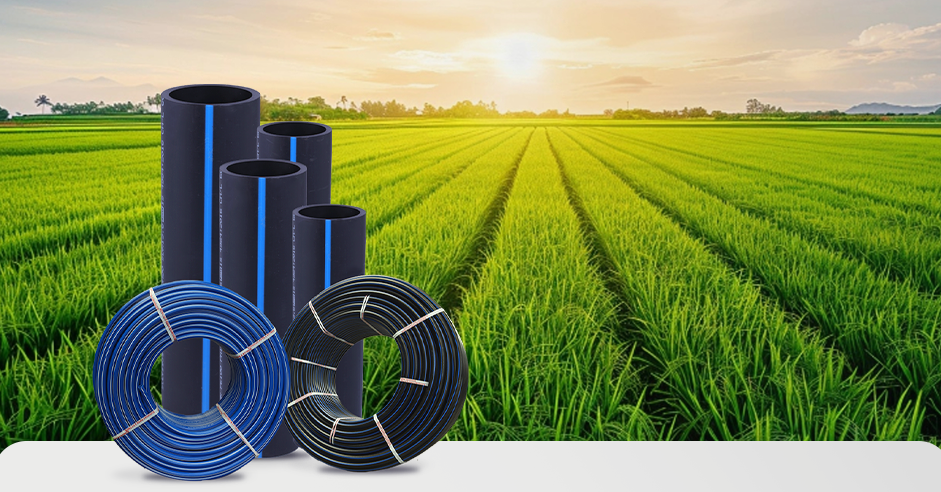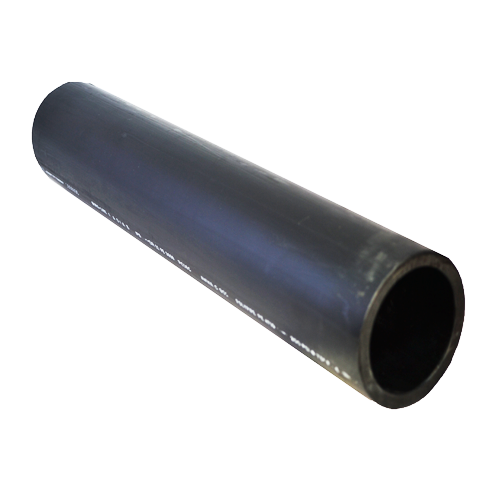A Comprehensive Guide to the Different Uses HDPE Pipeline in Building And Construction and Sector
HDPE pipes have become a crucial part in modern-day construction and commercial applications. Their unique properties, such as resistance to deterioration and lightweight style, make them suitable for a variety of uses. From water systems to farming watering, HDPE pipelines provide remedies that improve efficiency and sustainability. Comprehending their varied applications is crucial for specialists looking to maximize facilities. What specific advantages do these pipes bring to each field?
Water System and Circulation Systems
Water system and circulation systems are essential components of urban infrastructure, often relying upon high-density polyethylene (HDPE) pipes for their longevity and performance. These systems transport drinkable water from therapy facilities to consumers, making sure access and security. HDPE pipes are favored for their resistance to corrosion, chemicals, and extreme temperatures, which boosts their longevity and decreases upkeep costs. In addition, their light-weight nature enables less complicated installation and transportation, making them optimal for numerous city and rural applications.
The flexibility of HDPE pipes allows them to be mounted in limited areas and around obstacles, minimizing the need for extensive excavation (Pipe Manufacturing Midland TX). Their smooth indoor surface reduces rubbing losses, enhancing water circulation prices. As cities remain to expand, the demand for dependable supply of water systems enhances, placing HDPE pipes as a sustainable solution for contemporary infrastructure projects. Their tested track record makes them a preferred choice among engineers and urban coordinators alike
Wastewater Management and Treatment
Reliable wastewater management and therapy are important for maintaining public health and wellness and ecological top quality. HDPE pipelines play a crucial duty in this process due to their durability, resistance to corrosion, and ability to withstand extreme chemicals. These pipes are generally made use of in various applications, including sewer system, stormwater water drainage, and wastewater treatment facilities. Their light-weight nature promotes easier installation and transportation, decreasing labor prices and time.
Additionally, HDPE pipes have a smooth indoor surface that reduces friction loss, advertising efficient flow rates. They are also less prone to leaks and failings compared to conventional materials, making sure that contaminants are had successfully. Their versatility enables for versatility in numerous soil problems, making them ideal for varied environmental settings. As markets progressively prioritize sustainable practices, the usage of HDPE pipes in wastewater management systems straightens with objectives for lowering ecological influence and boosting source recuperation.
Agricultural Watering Solutions
In farming setups, reliable irrigation services are essential for maximizing plant yields and handling water sources. HDPE (High-Density Polyethylene) pipes play an important duty in modern watering systems because of their longevity, versatility, and resistance to deterioration. Their ability to endure high stress makes them optimal for both surface area and subsurface watering applications, guaranteeing uniform water distribution throughout areas.
Farmers can use HDPE pipelines in drip watering systems, which supply water directly to plant roots, decreasing wastage and promoting healthy and balanced growth. Furthermore, these pipes are lightweight and easy to install, decreasing labor expenses and installment time. Their long life expectancy and low upkeep needs even more improve their allure in farming practices.
HDPE pipes are ecologically friendly, as they can be reused and do not seep unsafe chemicals right into the dirt. This makes them a lasting choice for farmers aiming to take on environmentally friendly farming methods while maximizing efficiency.
Industrial Applications and Processes
Versatility is a trademark of HDPE pipelines, making them indispensable in different commercial applications and processes. These pipes are commonly utilized in chemical processing markets because of their excellent resistance to a vast range of harsh compounds. HDPE's lightweight nature, combined with high tensile stamina, permits simple setup and long-term performance popular settings.
In the oil and gas industry, HDPE pipes play an essential duty in delivering hydrocarbons and gases, thanks to their sturdiness and flexibility - American Plastics HDPE Pipe for Oilfield. In addition, they are utilized in mining operations for the transportation of slurry and various other materials, where typical piping systems may fail
HDPE pipelines are increasingly used in manufacturing centers for water supply lines and wastewater administration. Their capacity to endure severe temperature levels and stress makes them appropriate for a selection of commercial procedures. Overall, HDPE pipes contribute substantially to performance and safety and security throughout varied industrial applications.
Stormwater Administration and Drain Equipments
Stormwater management and drainage systems are vital elements in metropolitan framework, made to manage excess rainfall and minimize flooding risks. High-density polyethylene (HDPE) pipelines are progressively utilized in these systems due to their sturdiness, versatility, and resistance to rust. These pipelines successfully deliver stormwater away from populated locations, reducing surface drainage and preventing waterlogging.
HDPE's light-weight nature facilitates less complicated setup, minimizing labor expenses and building and construction time. Furthermore, its resistance to chemicals and ecological stress factors warranties longevity and dependability in numerous climates. Along with conventional water drainage applications, HDPE pipelines are additionally employed in ingenious solutions such as green infrastructure, which includes rainfall yards and absorptive pavements.

Frequently Asked Questions
Just How Does HDPE Pipe Compare to PVC Pipeline in Cost?
As a whole, HDPE pipe tends to be a lot more expensive than PVC pipeline because of its improved durability and versatility. Long-lasting price factors to consider, such as upkeep and life expectancy, might prefer HDPE in certain applications.
What Is the Lifespan of HDPE Piping Under Numerous Conditions?
HDPE pipes commonly have a life expectancy of 50 to 100 years, depending upon environmental conditions, installation techniques, and usage. Elements such as temperature, soil kind, and direct exposure to chemicals can greatly influence their durability.
Can HDPE Pipeline Be Recycled After Usage?
Yes, HDPE pipes can be recycled after usage. The reusing procedure includes thawing down the product, permitting it to be repurposed right into brand-new items, consequently promoting sustainability and lowering ecological influence connected with plastic waste.
Exist Any Type Of Specific Setup Challenges With HDPE Pipelines?
Setup difficulties with HDPE pipes consist of appropriate jointing methods, ensuring sufficient trench problems, and handling thermal development. In addition, proficient labor is called for to manage specialized tools, which can make complex the installment process in various settings.

What Accreditations Should I Search For When Buying HDPE Pipelines?
When buying HDPE pipes, one must look for certifications such as ASTM, AASHTO, and ISO, read more which verify high quality and conformity with industry criteria, assuring longevity and efficiency in different applications. - Midland TX HDPE Pipe Fittings in Stock